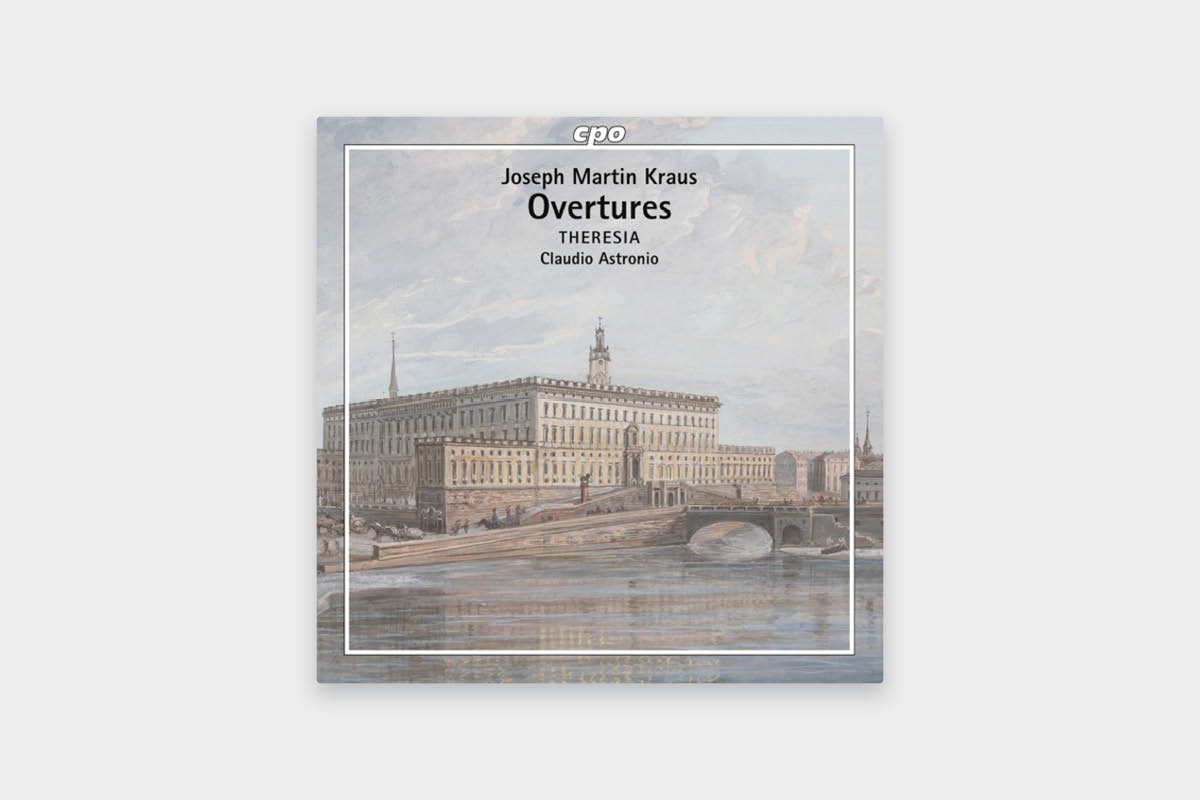The composer and poet Joseph Martin Kraus (1756-1792) was an almost direct contemporary of Mozart. Born in Germany, he moved to Sweden aged 21 where he died of tuberculosis at the age of 36. Musically, he resembles Mozart too, though filtered through Gluck and Haydn (both of whom he met) and with a healthy dollop of Sturm und Drang.

Attached to the court of the music-loving King Gustav III, Kraus composed operas – one of them to a libretto by the king himself – and was appointed a vice-Kapellmeister. Among his other notable compositions is a funeral cantata composed following the king’s assassination at the famous masked ball that prompted Verdi’s opera.
Naxos has done a decent job up until now of bringing attention to Kraus’ orchestral music, including symphonies and compositions for stage and ballet. However, with the arrival of this preliminary disc by Ensemble Theresia, a European Union period instrument ensemble for under 30s, the Kraus renaissance moves up a gear. Performances are sprightly, intonationally precise and full of character. Compared with their predecessors, the playing is lithe, dramatically flexible and...










Comments
Log in to join the conversation.